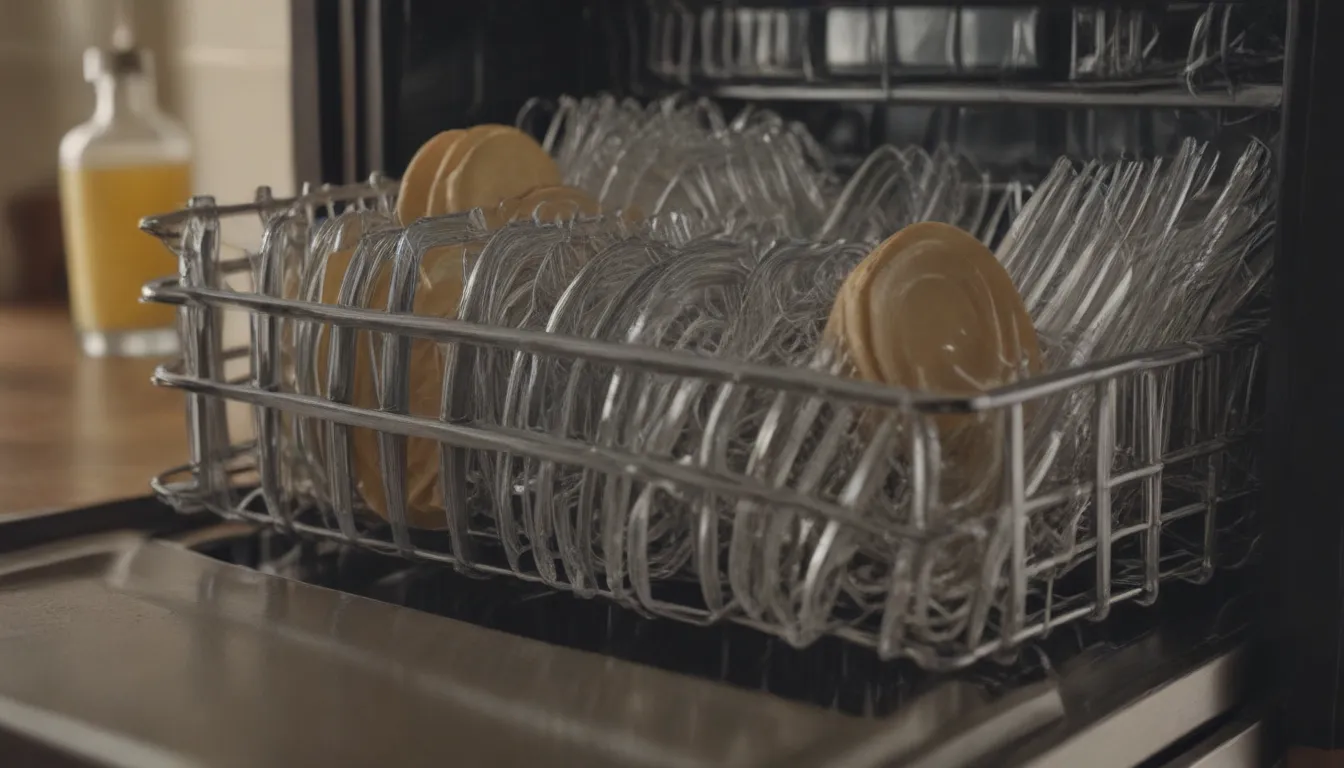The Benefits of Using a Dishwasher: How Much Water Are You Really Saving?

Have you ever wondered if using a dishwasher actually saves water? It may come as a surprise, but the answer is a resounding yes! In fact, dishwashers are not only more efficient than handwashing dishes when it comes to water usage, but they can also save you money on utility bills in the long run. Let’s dive into the reasons why using a dishwasher is the smarter choice and how you can make the most of this modern appliance.
The Water Savings of Using a Dishwasher
Contrary to popular belief, running a dishwasher uses less water than washing dishes by hand. According to Morgan Eberhard of P&G Home Care brands, the amount of water used in just two minutes of handwashing eight dishes is equivalent to the water used by a modern dishwasher to clean the same amount of dishes. Jeremy Tompson of Youthful Home further explains that a modern dishwasher typically uses about three to four gallons of water per cycle, compared to up to 27 gallons used during handwashing. Even older dishwasher models, which may use up to 15 gallons of water, are still more water-efficient than handwashing.
How Much Water Can You Save with a Dishwasher?
If you run your dishwasher every night instead of handwashing dishes, you can save an impressive amount of water. Tanya Klien of Anta Plumbing estimates that using a dishwasher nightly can save you up to 24 gallons of water per load, amounting to over 100 gallons of water saved per week. This translates to more than 5,000 gallons of water saved annually. In addition to the water savings, Eberhard highlights that running your dishwasher instead of handwashing can also lead to significant energy savings, reducing your utility bills by more than $100 per year and around $1,300 over the lifetime of your dishwasher.
Why Are Dishwashers More Efficient?
One of the key reasons why dishwashers are more water-efficient than handwashing is their ability to clean multiple dishes and utensils simultaneously without wasting water. According to Tompson, dishwashers heat water to a temperature that effectively cleans dishes quickly. Katie Sadler of Whirlpool adds that dishwashers are designed to filter and reuse water throughout the cycle, minimizing the need for fresh water. These features make dishwashers not only efficient but also environmentally friendly.
The Inefficiency of Handwashing
On the other hand, handwashing dishes can be highly ineffective and inefficient when it comes to water usage. Klien points out that the common practice of keeping the hot water running while washing and rinsing dishes can lead to excessive water waste. However, with some simple adjustments such as installing an aerator faucet, scraping food off plates before washing, and soaking dishes in soapy water, you can significantly reduce the amount of water used for handwashing. By becoming more efficient in your handwashing habits, you can lower your water consumption to around nine gallons per load.
Do You Need a New Dishwasher?
If you’re wondering whether you need to invest in a new dishwasher to save water, the answer is no. While newer Energy Star–certified dishwashers offer the most water savings through advanced features like soil sensors and efficient jets, older dishwasher models can still be more water-efficient than handwashing. Tompson suggests that upgrading to an Energy Star–certified dishwasher can reduce water usage by up to 80% compared to handwashing. However, it’s important to choose a dishwasher that meets your needs to avoid wasting water and energy.
Tips to Make Your Dishwasher More Efficient
- Avoid the standby option: Running a dishwasher daily may reduce its longevity, so avoid leaving it on standby mode when not in use.
- Clean the dishwasher: Regularly clean your dishwasher to ensure optimal performance and water efficiency.
- Don’t rinse dishes: Skip rinsing dishes before loading them into the dishwasher to save water.
- Handwash some items: For items that are not dishwasher-safe, handwash them efficiently to minimize water usage.
Using these tips, you can maximize the water savings of your dishwasher while ensuring its longevity and efficiency. Additionally, consider taking advantage of off-peak hours programs offered by local utilities to run your dishwasher during times of lower energy costs.
In conclusion, using a dishwasher is a practical and water-efficient way to clean your dishes while saving money on utility bills. By understanding the water-saving benefits of dishwashers and implementing efficient handwashing practices when necessary, you can contribute to water conservation efforts in your home. So next time you’re debating between handwashing and using the dishwasher, remember that the dishwasher is not only a time-saver but also a water-saver.





